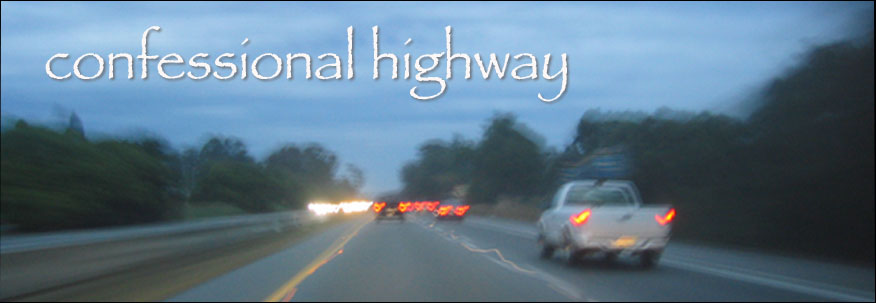A typical Tuesday afternoon, I turn into a cramped parking lot with parents loading and unloading kids. My son leaps from the car and races into a tiny building for his guitar lesson. I can’t accomplish much in a half hour, so I find a safe spot in my car against a dumpster to wait, and pull out a book. Suddenly, an odd sound draws my attention.
I look up, and I see this kid, maybe five-years-old, maybe less, poking out of the open sunroof of a parked SUV. In his hand, a toy machine gun, army green, strap dangling. He’s picking off passing cars like a sniper in training, eagerly providing the sound effects as they pass by. Meanwhile, his mother yaks on her cellphone, apparently thrilled that her son has found a way to occupy himself.
Only one question comes to mind: “What the hell is she thinking???”
I want to go bang on her car window and ask, but I stop to consider current societal rules. When do we have the right to step in and comment on the behavior of other people’s children?
I understand that breaking down such barriers between strangers opens the door to battles of conflicting values and mores. Another parent could easily approach my son and complain about his low-hanging jeans exposing his multicolored plaid boxers. Actually, if anyone could convince my son to pull up his pants, I’d probably welcome the intrusion.
What I see as a minor nuisance is someone else’s moral imperative and vice versa. But if we’re growing a society together, isn’t it our duty to discuss these issues?
I barely know my neighbors in an era where it’s easier to reach out via the Internet than to knock on an acquaintance’s door and extend an invitation to dinner. In my suburban childhood, kids flew out of each other’s homes, parents stepping in for one another. My son will never experience this kind of community. Our corner of Venice doesn’t appear to house children, for I’ve barely ever seen another kid in my immediate neighborhood.
We joyously live on a sleepy walkstreet shielded from traffic, a half a block from the noisy chaos of the Venice boardwalk where anything goes. On walks, my son witnesses people of every color and culture. Scruffy musicians sing out as they strum guitars. Drum circles erupt, and the sound of a mournful sax scores our sunsets. Yes, we walk in an odd version of reality with homeless and people who need to be in mental hospitals, where far too many trinkets and T-shirts are for sale, and pizza is the primary culinary offering, but I love how this pocket of affluent Westside LA hasn’t been completely sanitized, at least not yet.
It’s this lack of sanitization that keeps parents with options away. When I first moved to Venice, gang graffiti decorated every building. A triangular zone nearby, commonly referred to as Ghost Town or the ghetto, erupted nightly with automatic weapon fire as gangs and drug dealers prowled the streets. In the daylight hours, underprivileged children romped in the front yards of the only remaining LA beachside area defying gentrification.
But now even that part of Venice is transforming. Things have quieted down. And that’s good and bad. No one wants kids to be surrounded by violence, but many poor families are being forced from that neighborhood as property values rise, one of the sad realities of progress.
With the sound of the nearby gunfire disappearing, families are eying our walkstreet, and perhaps soon my son will have friends within walking distance. That would be nice. On the downside, the spirit of Venice struggles to survive as new residents want to experience a cleaned up version of this once artsy community.
But when these new neighbors fight for policies that attack the heart of Venice, I speak up and come to its defense. And that’s probably what I should have done when the young sniper took me into his scope. But how? How do I approach a stranger and question her parenting? Should I just knock on her window and say, “Uh, excuse me. Remember Columbine?” and then point to her son? Would that be acceptable?
I don’t want someone’s kid practicing his sniper skills. It offends my sensibility, especially since I was one of his targets. Living on the edge of a neighborhood that once grappled daily with violence, I struggle to comprehend the affluent suburban parent who hands a young child a machine gun with no interest in intervening when antisocial behavior emerges. For those eager to come to the defense of gunplay, let me just say this is not about two little boys going ‘Bang! Bang’ in their backyard, though that would hardy be my choice of play. What’s at issue is, “How do we learn to talk to each other again?”
I haven’t felt a sense of community since first arriving in Venice in my twenties. Sadly, that feeling quickly vanished due to the transient lifestyle this city breeds. And while I hardly idealize my childhood (let’s not go there), I mourn the vanishing community, and along with it the ability to turn to a stranger’s kid and without hesitation say, “Don’t point that gun at me!”
Subscribe to:
Post Comments (Atom)


5 comments:
very poignant and true. couldn't finish cuz gotta run and get the kids suited up for paintballing. what fun!
walking on Broadway and 93rd St here in NY I was confronted with a similar dilema, two mothers of color with kids acting up who were literally pummeling and slapping them into submission, using amazingly inappropriate language with kids no older than about four. I feel like a total heel now for not stepping in, for just letting these women wail on these poor children like that. Nothing a child does this side of arson or murder requires physical violence as a response.
But all I did, all anyone else did walking by, was shake our heads and give disapproving looks. If it takes a village, all I can say is, some village.
Interesting. Brings so many thougts to mind. The link, for example, between the Venice that has kept families away (the homeless, the gunfire, etc...) and the mothers "of color" yelling at their children in NYC. Must say, I'm not sure what their color has to do with it (and I must admit the reference offended me), but I will say this. Those abusive mothers (for that's the real issue) and those homeless are not so far apart from one another as they might seem. Both sets of people are human beings who are in crisis, who have no doubt experienced a great deal of emotional pain in their own lives, including, perhaps, the pain of entrenched unremediable poverty. Before we can have the kind of village in which we could intervene with the mothers on 93rd and Broadway, or the mother on the cell phone while her little boy plays sniper, we'd have to actually give a damn about the parents, as well. No one attacks a child or mindlessly allows him to play sniper unless her own need for loving care has been neglected. What community might really mean is not that we step in to correct the parenting of our neighbors, but that we create a world in which the parents would be so filled from within that proper parenting would be second nature. Yesterday, while getting my hair blown out, I heard the story of a little eight year old girl whose mother (now deceased) conceived her with a homeless man in Venice. She is now being raised by her 60-something year old step father who permits her homeless father to have the visitation rights he insisted upon. The father apparently rents a hotel room when he has the girl, where they watch porn together and where she sometimes watches him have sex. Noone in the Topanga Canyon community where she lives has stepped in to stop this. They just send her off to see her father while making sure the little girl--who is growing more inappropriate by the minute--doesn't get near their kids. This little girl, you can bet on it, will one day be someone's mother. And when she is a woman, with children of her own, we will see her, sitting idly by while her son plays sniper, or cursing her kids on the street, and we will condemn her -- that is, unless we learn what community really is. Community is not about condemnation. It's about compassion. It's about seeing that there but for the grace of God go I. Perhaps the real question is how can we help. Correcting the mother on the cell phone, or the mothers on the Manhattan street, would not have transformed their parenting or altered the lives of their children in any significant way. When people are judged, when they are not seen for the broken and perfect people that they are, they do not take to advice kindly. They shut down, they defend themselves from attack, they fight back, but they rarely if ever change. To effect change in the lives of others, we must actually have something mightier than judgment to offer them, something akin to love. What might compassionate involvement in the lives of others look like? That's the question. Maybe we've lost sight of the answer, or maybe we've never known. Our own pain may be standing in the way.
I really appreciated this post. I have definitely been in this situation of do you step in or do you not step in. As a teacher, I have witnessed moments that make me uncomfortable and are not my way to deal with kids. However, my way is not the only way. It is a tough balance between judgment and knowing when to step in. Really tough!
what if the kid had a toy cell phone and was babbling away talking to himself... would that have offended you as much? ah, how dare he aim his attention upon the world and make contact... let's blame the mother, let's shut him up, shut him out, give him no voice at all, anything but return fire, say, "hi... you just shot me and now i'm dead, what do you think of that?"
i wonder if he might have smiled, eager to be responded to by a live human being who really was there after all.
i'm new to your blog. i like this kind of writing. it makes me think. invites me to join in the collective dream we're dreaming going through ordinary life and then writing so beautifuly about it all. so, thank you for stepping forward like this.
Post a Comment